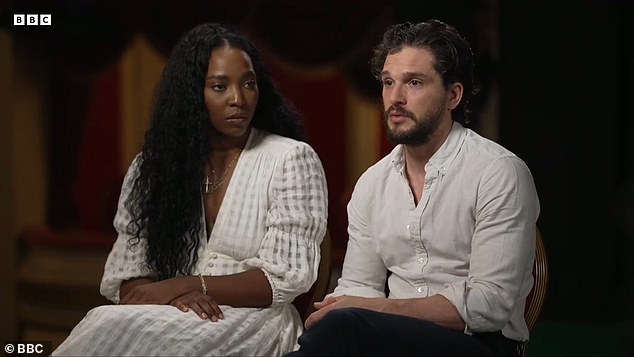Kit Harington has hit out at critics of the controversial “blacks only night” for his West End show Slave Play, calling the idea “an incredibly positive thing”.
The production at the Noel Coward Theatre came under fire earlier this year after it was announced it would run two performances aimed at an “exclusively black-identifying audience” and was “free from the white gaze”.
At the time, a spokesman for then-Prime Minister Rishi Sunak called the idea “concerning” and said the arts should be “inclusive and open to all”.
Kit appeared on the BBC show with Laura Kuenssberg on Sunday alongside co-star Olivia Washington and said: ‘First of all, if you’re white, nobody’s stopping you from buying a ticket, it’s not illegal to buy a ticket for that show, if you want to come.’
‘He’s saying ‘We’d rather the audience be this.’
Kit Harington has hit out at critics of his West End show Slave Play’s “blacks-only night”, calling the idea “an incredibly positive thing” (pictured with co-star Olivia Washington)
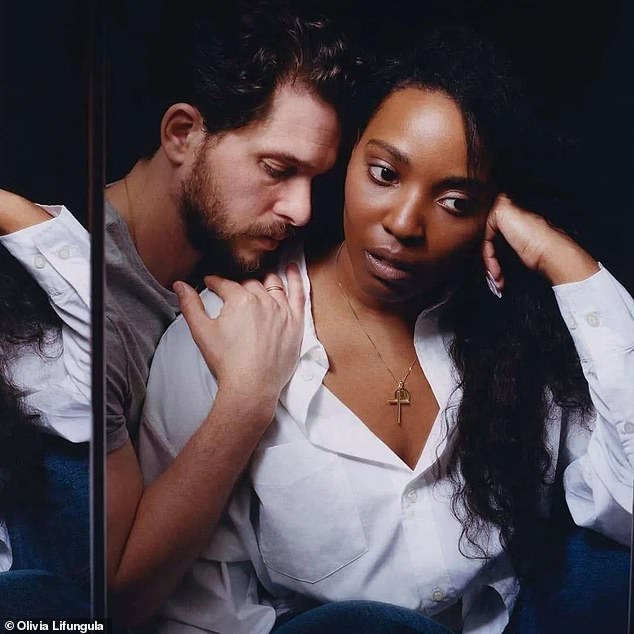
The production at the Noel Coward Theatre came under fire earlier this year after it was announced it would run two performances aimed at “exclusively black-identifying audiences”.
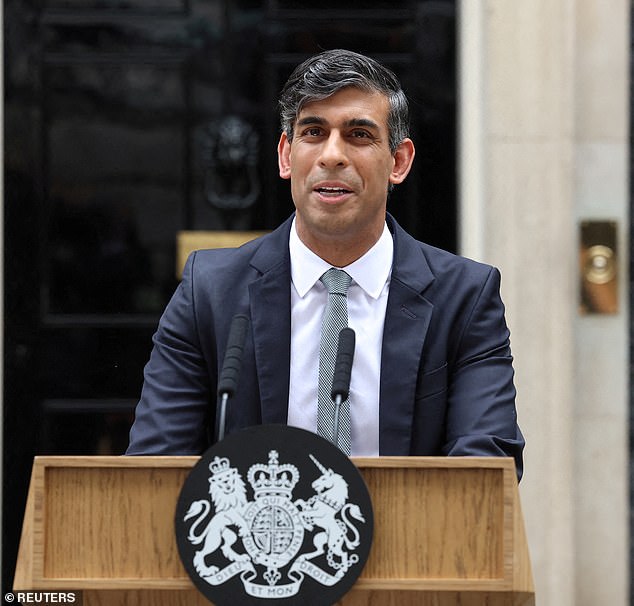
At the time, a spokesman for then-Prime Minister Rishi Sunak called the idea “concerning” and said the arts should be “inclusive and open to all”.
‘Secondly, I’ve been going to the theatre since I was young, with my mother. I’ve only really known a predominantly white audience. It’s still a particularly white space. So to argue that “this is discriminatory to white people” seems vaguely strange and ridiculous to me.’
A spokesperson said on behalf of the then Prime Minister: “The Prime Minister is a great supporter of the arts and believes that the arts should be inclusive and open to all, particularly where those arts spaces receive public funding,” they said.
“Obviously, these reports are worrying and more information is being sought.
“But clearly, restricting audiences based on race would be wrong and divisive.”
Asked whether that was an implicit threat to withdraw taxpayer support, the spokesman said: “No, it is a statement of principle that clearly the arts must be inclusive.
“And I think taxpayers would expect that to be the case, especially when it comes to public funding.”
The show’s playwright, Jeremy O Harris, also defended the decision, saying he was “really excited” to be performing nights in the West End where tickets were only sold to people who identified as black.
He said that “it is necessary to radically invite them with initiatives that say ‘you are invited’. Specifically, you.”
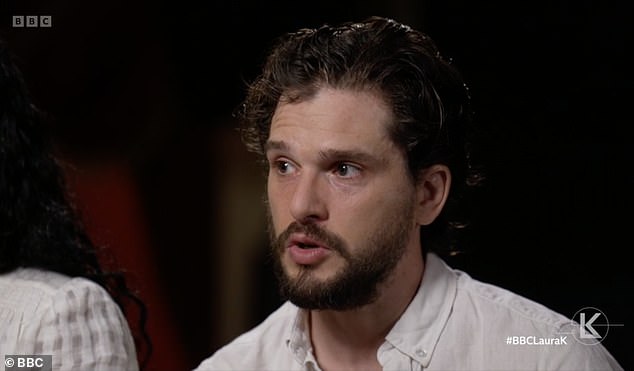
Kit appeared on the BBC’s Laura Kuenssberg show on Sunday and said: ‘First of all, if you’re white, nobody’s stopping you from buying a ticket, it’s not illegal to buy a ticket for that show.’
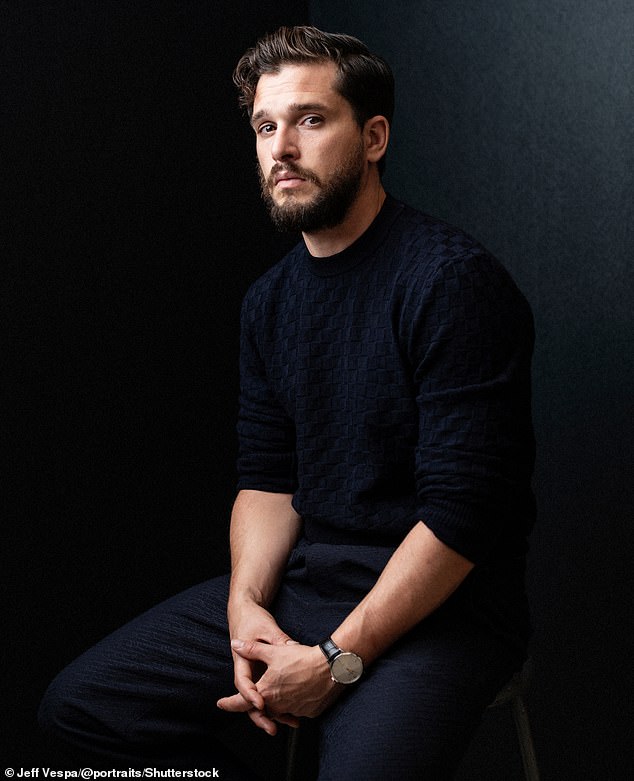
She continued: “Secondly, I’ve been going to the theatre since I was young, with my mother. I’ve only really known a predominantly white audience. It’s still a particularly white space.”
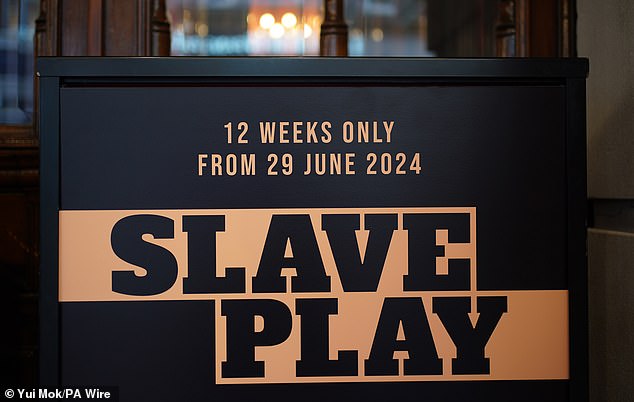
Slave Play, about race, identity and sexuality in 21st-century America, was a huge hit when it debuted in 2019, but was also controversial, with one petition calling for it to be cancelled.
Speaking to BBC Sounds earlier this year, she said: ‘One of the things we have to remember is that people have to be radically invited into a space to know that they belong there and in most places in the West, poor and black people have been told that they don’t belong inside the theatre.
‘For me, as someone who wants and yearns for Black and Brown people to be in theatre, who comes from a working-class background, who wants people who don’t make six figures to feel like theatre is a place for them, it’s a necessity to radically invite them in with initiatives that say ‘you’re invited.’ Specifically, you.’
Asked if it made him uncomfortable that he was in turn telling white people they weren’t allowed in the space, he replied: “There’s a litany of places in our country that are generally only inhabited by white people, and nobody questions that, and nobody says that by inviting black audiences in here, you’re not invited.”
‘The idea of a Black Out night is to say that this is a night where we specifically invite black people to fill the space, to feel safe with lots of other black people in a place where they often don’t feel safe.’
Asked if the theater felt differently in that regard, he said: “100%. Let’s not act like we don’t know that culturally white audiences and black audiences react to things differently.”
He spoke of a history in black American audiences where a “call and response” was common, for example, and agreed that it can be a “noisier experience.”
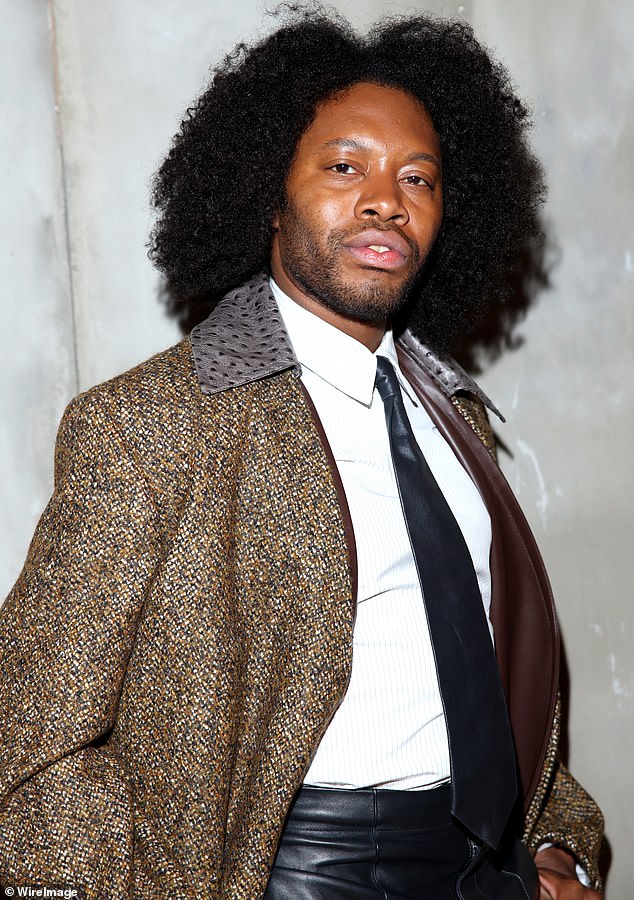
The show’s playwright, Jeremy O Harris, also defended the decision, saying he was “really excited” to be performing nights in the West End where tickets were only sold to people who identified as black.
“White audiences in the West have decided to remain silent and respond politely to whatever they see in front of them,” he said, adding that this was not always the case in the past.
A senior Conservative MP, who did not want to be named, raised questions about the decision to ban white people from the show, telling MailOnline at the time: “I understand the subject matter of the show may have a particular resonance for some, but would you simply question the legality of this?”
In other circles it would be illegal and racial discrimination. I don’t understand why it isn’t here.
Slave Play, written by O’Harris and about race, identity and sexuality in 21st-century America, was a huge hit when it debuted in 2019, but it was also controversial, with a petition to cancel it emerging.
According to the guardianSome argued that the play — which revolves around three interracial couples trying to revive their relationships while playing at being on a plantation — made light of slavery and left at least one audience member “offended and traumatized.”
Despite criticism, Slave Play received 12 Tony nominations in 2021.


